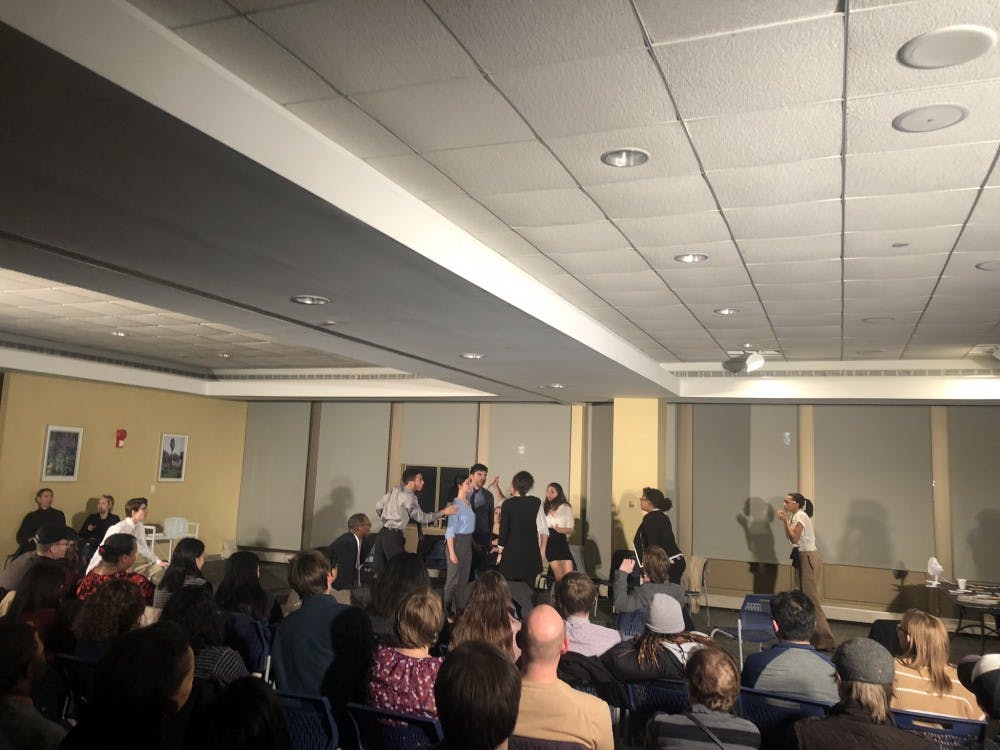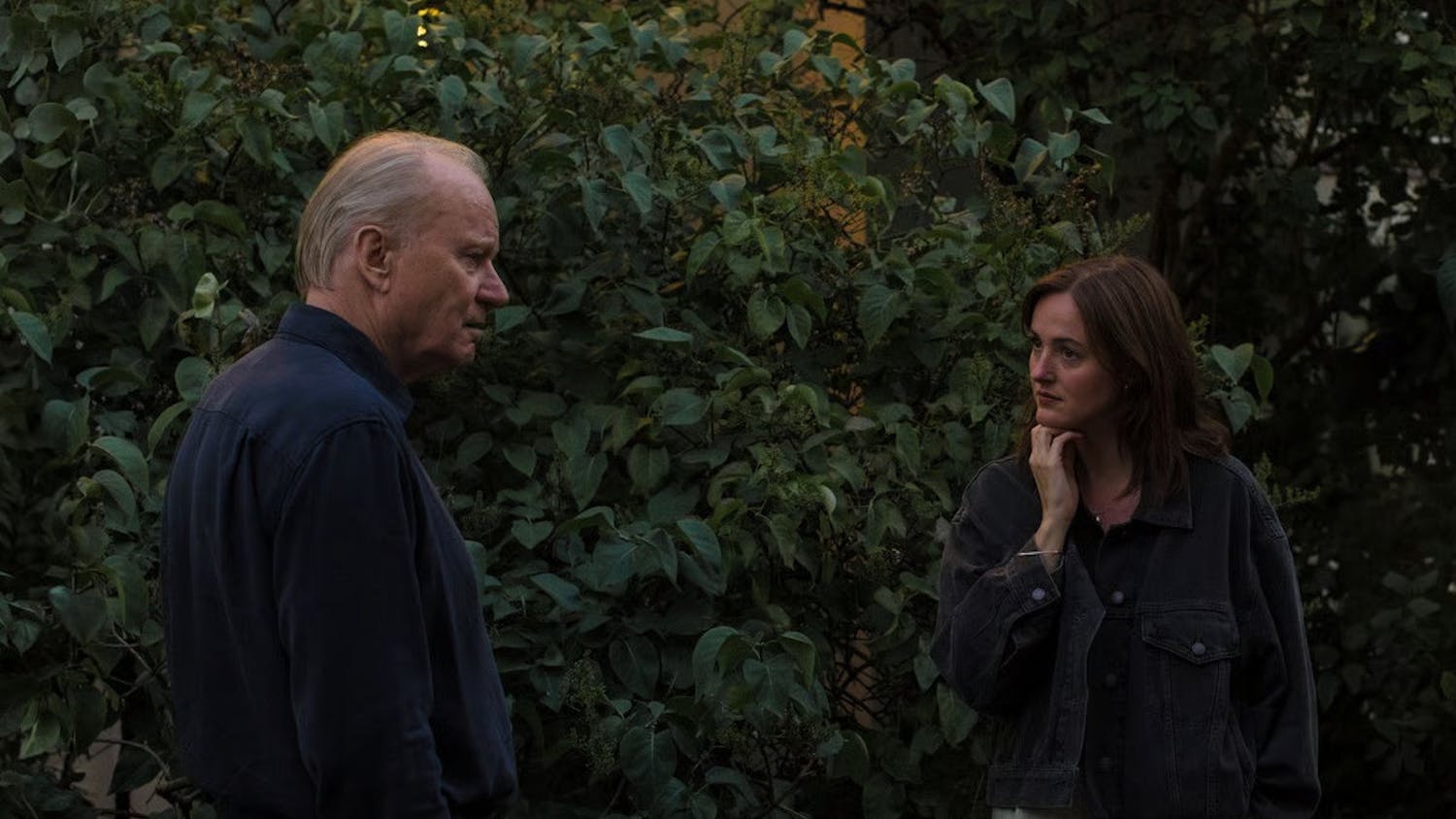Last fall, College of Arts and Sciences seniors Julia Harris and Marena Gloth launched Open Dialogue Theatre, a new student group whose goal is to deliver thought-provoking performances.
Its showcase of “12 Angry Jurors” ran from Feb. 28 to March 2, marking the group’s moving debut, bringing political issues like prejudice and xenophobia from the forefront of national discourse to AU.
The cast and production team transformed the Mary Graydon conference room into the jury room of a homicide trial, drawing audience members into the scene through its window and column setpieces.
Harris made innovative staging decisions, altering the jurors’ seating arrangement as their voting patterns shift throughout the play. This change “encourages the audience to see the jurors as themselves as and as a continuation of the audience,” Harris said.
The set up offered an incredibly intimate glimpse into each juror’s innermost feelings and emotional conflicts with other characters. Audience members witnessed firsthand how each juror’s experience and introspection informed their perceptions and potential biases of the case, allowing them to be more invested in each juror’s opinions and how they transformed over time.
“It’s all about making the audience feel like they have a stake in this,” said Heather Adams, who played Juror #8.
Given the space’s enclosure and the cast’s passion, the play did exactly that.
The 1958 staging of “12 Angry Jurors” takes place in New York in 1954, but Open Dialogue Theatre’s unique rendition is set in Washington D.C. in 2019, bringing these issues even closer to home.
“Even though ‘12 Angry Jurors’ was written in the 1950s, almost everything can be said today and makes perfect sense ... all of the issues, all of the prejudices, everything,” Adams said. “You just tweak a couple of year numbers and movie titles and it could have been said today.”
Olivia Smith-Elnaggar, who plays Juror #12 said the play could relate to audience members’ every day lives.
“Monologues that may seem like a racist manifesto are actually indicative of very real problems that normal people face,” Smith-Elnaggar said.
Specific political and cultural references used to describe how a juror's everyday life in D.C. would look like today helped the play's commentary on prejudice leave a lasting impression that was all the more visceral.
“People from all different walks of life that are forced into a room together and forced to talk about a very important issue,” Harris said. “[They] are not allowed to hide behind their computer screens, log off or walk away. They have to talk about it and they have to confront the different aspects of America and American ideology.”
Since seeing the performance, moments of contention from “12 Angry Jurors” have infiltrated my thoughts. The play illuminated experiences and conversations within my own life as an American University student that mirror those of the jurors.
Open Dialogue Theatre certainly made its mark on “12 Angry Jurors” audience members, but the widespread impact it may have on campus is only just beginning.





